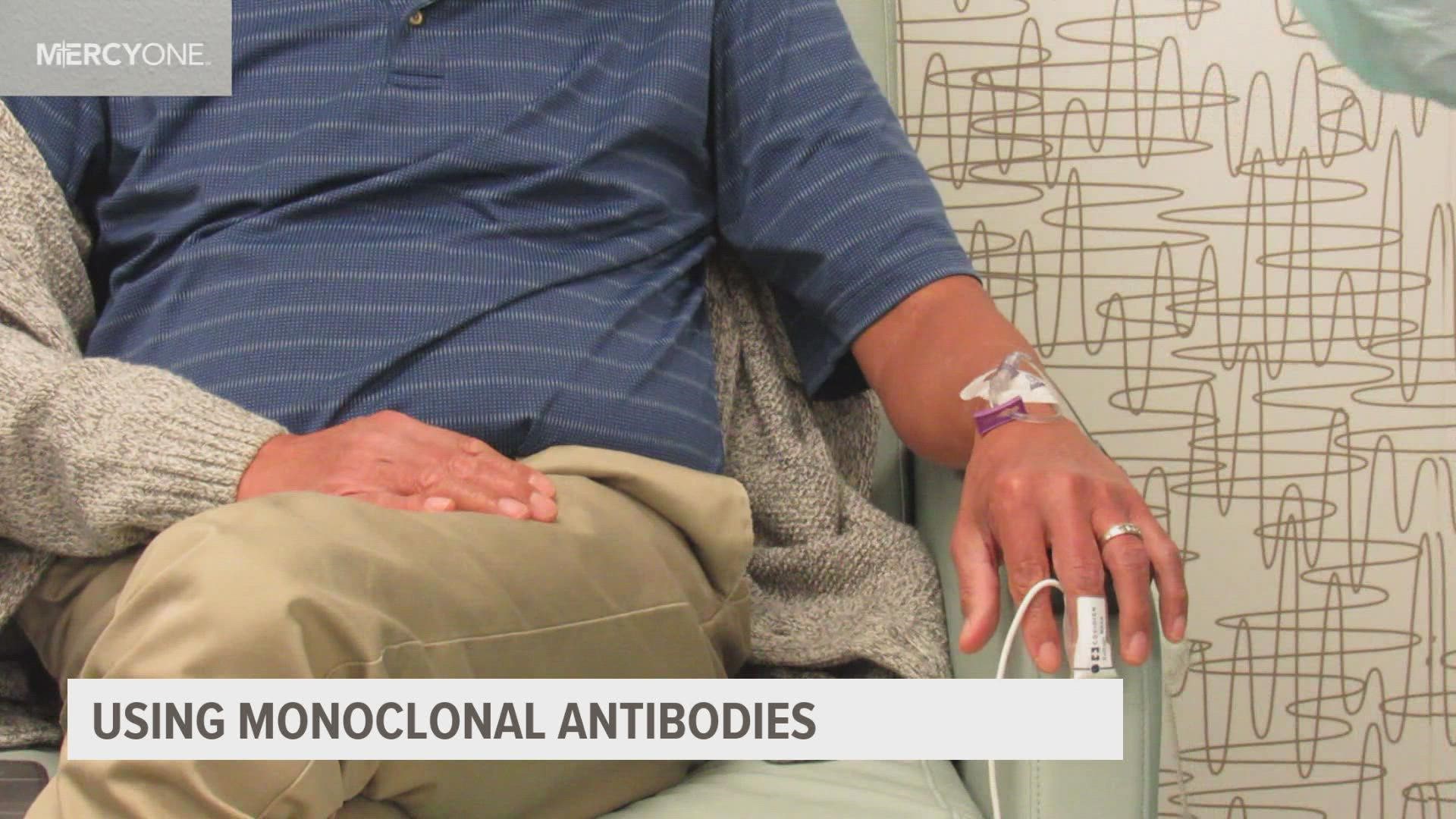DES MOINES, Iowa — MercyOne Des Moines Medical Center has been treating people at high risk for sever COVID-19 symptoms with monoclonal antibodies for nearly a year.
The hospital treated its first patient with Bamlanivimab, a form of monoclonal antibodies on Nov. 20 2020.
"Initially there was some pretty good data on that particular product," Dr. Ravi Vemuri, an infectious disease specialist at MercyOne said.
Vemuri said those antibodies are synthetic versions of proteins produced by the immune system in response to invading viruses or pathogens. They are meant to bind portions of the virus to prevent it from initiating an infection.
To receive this treatment people must be 12 or older, weigh at least 88 pounds and have a chronic medical condition.
"The whole idea is to give it to the high-risk individuals in a timely fashion to avoid getting admitted [to the hospital] in the first place, to avoid disease progression," Vemuri said. "So those that we can get it into in a timely fashion we do see fairly good results."
To date, MercyOne has treated over 600 patients with monoclonal antibodies.
One of those patients was 98-year-old Evolue Baxter.
When Local 5 introduced you to her in January, Baxter had just recovered from COVID-19 after receiving her treatment a few weeks earlier. Now, she credits the antibodies for keeping her out of the hospital and allowing her to still work out.
"I try to do those exercises but I don't do them every day," Baxter said. "I'm lucky if I do them twice a week. I forget about them and I think 'oh I better exercise.'"
Vemuri said overall the antibody treatments have been successful by keeping people from entering the hospital.
"Those that received the product had a 70-75% less chance of progressing and requiring hospitalization," Vemuri said.
The doctor also said even though monoclonal antibody treatment does reduce the hospitalizations in high-risk patients who receive it, getting the vaccine is still the best way to fight against COVID.
WATCH | State auditor accuses Iowa governor of misusing COVID relief funds for staff salaries

